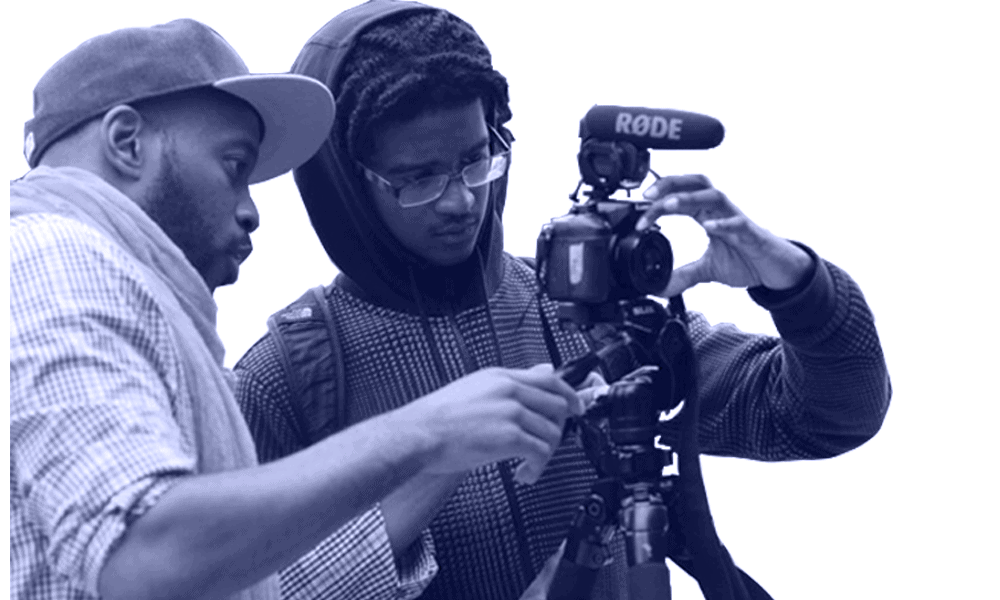Hook Arts Media, the nonprofit formerly known as Dance Theatre Etcetera, is working to train a new generation of filmmakers in Red Hook. On May 18, a screening of short films directed by high-schoolers and young adults took place at the organization’s Van Brunt Street loft, concluding a seven-week afterschool filmmaking program, “In Transition: Media,” led by Jordan Campbell.
The event began with a series of one-minute, dialogue-free, often nonnarrative films, which, among other things, chronicled a Sisyphean journey up a parking garage stairwell, a (staged) car accident outside PS 15, and the doomed friendship of an anthropomorphic pair of vegetables that escape from Fairway. A longer, scripted story about a jaded adult man encountering his happy-go-lucky younger self followed.
The main presentation was a documentary about the idea of “utopia.” The filmmakers researched the origins of the term, debated the aspirational value of the concept, and then traveled around the neighborhood to interview different people about what the word means to them and about the ways in which Red Hook might currently fall short of the ideal.
One of the young directors, Tristan, explained that the idea came from a brainstorming exercise where the students wrote out the alphabet and then came up with a word for each letter — something that could serve as the topic of a movie. For “U,” Tristan wrote “utopia.”
Hooks Arts Media partners with the New York City Department of Education to bring art education into schools and to recruit students for onsite courses (two sessions per week in this case). For “In Transition: Media,” several pupils came from South Brooklyn Community High School in Red Hook, others from the Secondary School for Journalism in Park Slope, but some came from places as far as Manhattan and Queens.
Participants in Hook Arts Media’s filmmaking programs receive minimum-wage stipends. They received instruction in camera operation, video editing, and audio recording; they also reported boosts in self-confidence — one said that she learned that “it’s OK to be weird” — and social skills. 11 students graduated. On July 1, some will continue onward to “Digital Boot Camp,” an 80-hour summer filmmaking intensive study that will culminate with the students creating promotional videos for local “cause-based organizations.”
Keira, 19, and Alexandria, 20, experienced some initial difficulties with both camera (“It has too many buttons”) and audio equipment. With the latter, the most challenging part is “knowing if the voice is good enough” and also “knowing if the machine is off standby. There was one interview we had on the tugboat over here and I didn’t get the audio because no one told me to press it twice.” They reported, however, that the basics took no more than a day of instruction to grasp.









